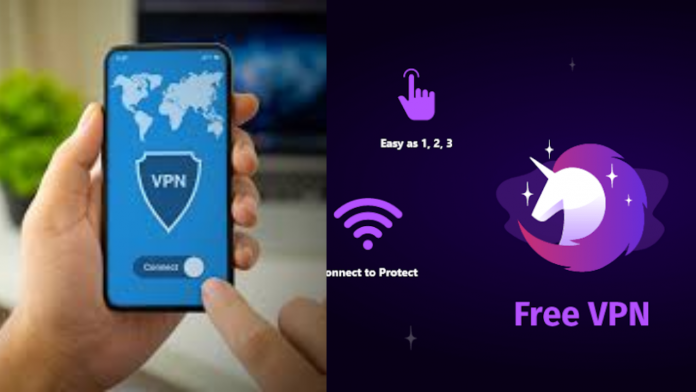In today’s digital age, where concerns about online privacy and security are more prevalent than ever, many individuals look for ways to protect their Internet activities. One option that often comes to mind is to use a Virtual Private Network, or VPN. Although VPNs can provide a layer of protection,
the question arises: is it safe to use a free VPN? In this article, we’ll delve deeper into the world of free VPNs, exploring their benefits, limitations, potential risks, and whether they really provide a secure online experience.
In a digital landscape where privacy violations and cyber threats are rampant, using a VPN has emerged as a popular way to protect personal information from prying eyes. With the allure of free services,
many users gravitate towards free VPNs as an attractive solution. However, before jumping on the free VPN bandwagon, it is essential to understand both their advantages and potential disadvantages.
What is a VPN?
A Virtual Private Network (VPN) is a technology that creates a secure and encrypted connection between a user’s device and the Internet. It acts as a private tunnel through which Internet traffic is routed, thereby protecting a user’s online activities from potential eavesdropping, surveillance, and cyber threats.
When you connect to a VPN server, your Internet traffic is encrypted, meaning it is transformed into a code that only the VPN server and your device can understand. This encryption helps ensure the confidentiality and integrity of your data as it travels between your device and the servers. As a result, VPNs are commonly used to enhance online privacy, security, and anonymity.
One of the primary functions of a VPN is to hide your IP address, which is a unique identifier assigned to your device when you connect to the Internet. By routing your Internet traffic through a VPN server located in a different geographic location, you can effectively hide your real IP address and assume the server’s IP address. This makes it difficult for websites, advertisers, and even your Internet Service Provider (ISP) to track your online activities and trace them back to you.
In addition to the privacy benefits, VPNs can also be used to bypass geographic restrictions and censorship. For example, if a website or online service is blocked in your country, you can connect to a VPN server located in a country where the content is accessible, effectively bypassing the restriction.
VPNs are widely used by individuals, businesses, and organizations to protect sensitive data, access remote resources, and maintain a level of privacy when using the Internet. However, it is important to note that while VPNs offer many benefits, the level of security and privacy they provide can vary depending on the provider and the technology used. It is advised to choose a reputable VPN service that has a strong track record of protecting user data and respecting privacy.
Read This Article : Is eSIM Available for Airtel Prepaid
The Appeal of Free VPNs
Free VPNs undoubtedly hold a strong appeal, primarily because they cost nothing. For users seeking a quick and cost-effective way to access geo-restricted content or maintain a semblance of anonymity, free VPNs seem like an ideal choice. These services often boast ease of use, making them accessible even for those with limited technical knowledge.
Limitations of Free VPN Services
While free VPNs offer undeniable advantages, they also come with notable limitations. These limitations can include restricted server options, slower connection speeds, and data caps. In essence, users of free VPNs may find their online experience hampered by these constraints.
Privacy Concerns and Data Collection
One of the primary concerns with free VPNs revolves around the potential for data collection and compromised privacy. Some free VPN providers have been known to log user data, which can then be sold to third parties or used for targeted advertising. This directly contradicts the very purpose of using a VPN to maintain privacy.
Potential Risks of Free VPNs
Beyond data collection, there are additional risks associated with free VPNs. These risks encompass malware distribution, exposure to scams, and even being unwittingly involved in cybercriminal activities. Without robust security measures, free VPN users might inadvertently become vulnerable targets for malicious actors.
Balancing Security and Cost
The adage “you get what you pay for” rings true in the world of VPNs. While free VPNs offer a cost-effective option, they often lack the advanced security features and robust infrastructure that premium, paid VPNs provide. Determining the right balance between security and cost is crucial for anyone considering a VPN.
Paid vs. Free VPNs: A Comparison
To make an informed decision, it’s essential to compare paid and free VPNs thoroughly. Paid VPNs typically offer more comprehensive security features, faster speeds, and a wider range of server locations. They also tend to have dedicated customer support and transparent privacy policies, qualities that might be lacking in their free counterparts.
Choosing a Trustworthy VPN Provider
For those leaning towards using a free VPN, it’s imperative to choose a trustworthy provider. Researching a provider’s track record, reading user reviews, and understanding their data handling practices are essential steps in ensuring that the chosen free VPN is both reliable and secure.
Best Practices for Using Free VPNs Safely
While using a free VPN, certain best practices can help mitigate potential risks. These include avoiding free VPNs that have a history of data breaches, regularly updating software, and being cautious of the permissions an app requests. By exercising vigilance, users can maximize their safety while utilizing a free VPN.
Real-World Examples and Case Studies
Numerous real-world examples illustrate the pros and cons of using free VPNs. Case studies of security breaches, data leaks, and compromised privacy can provide valuable insights into the potential dangers that users may face when opting for a free VPN service.
The Importance of Reading Terms of Service
Many users overlook the importance of reading a VPN provider’s terms of service. This document often contains crucial information about data usage, logging policies, and the provider’s stance on user privacy. Being well-informed about these aspects can help users make more educated choices.
Free VPNs and Geographical Restrictions
Free VPNs can also be a useful tool for bypassing geographical content restrictions. However, users should be aware that not all free VPNs can reliably overcome such restrictions, and there may be limitations in terms of streaming quality and server availability.
Conclusion
In the grand scheme of online security, the decision to use a free VPN boils down to a delicate balance between convenience, cost, and risk. While free VPNs can offer a basic level of protection, users must acknowledge their limitations and potential drawbacks. Ultimately, ensuring online safety requires careful consideration of the chosen VPN’s reputation, security features, and commitment to user privacy.
FAQs
1. Are all free VPNs unsafe? While not all free VPNs are inherently unsafe, it’s crucial to research and choose a reputable provider to avoid potential risks.
2. Can free VPNs protect my data from hackers? Free VPNs can offer some protection against hackers, but their security measures might not be as robust as those provided by paid VPNs.
3. Why do some free VPNs slow down my internet connection? Many free VPNs impose data caps and route traffic through congested servers, leading to slower connection speeds.
4. How do I know if a free VPN is logging my data? Reading the VPN provider’s privacy policy and terms of service can provide insights into whether they log user data.
5. What’s the best way to ensure my online security? A combination of using a trustworthy VPN, practicing good online hygiene, and staying informed about potential threats is key to ensuring online security.

